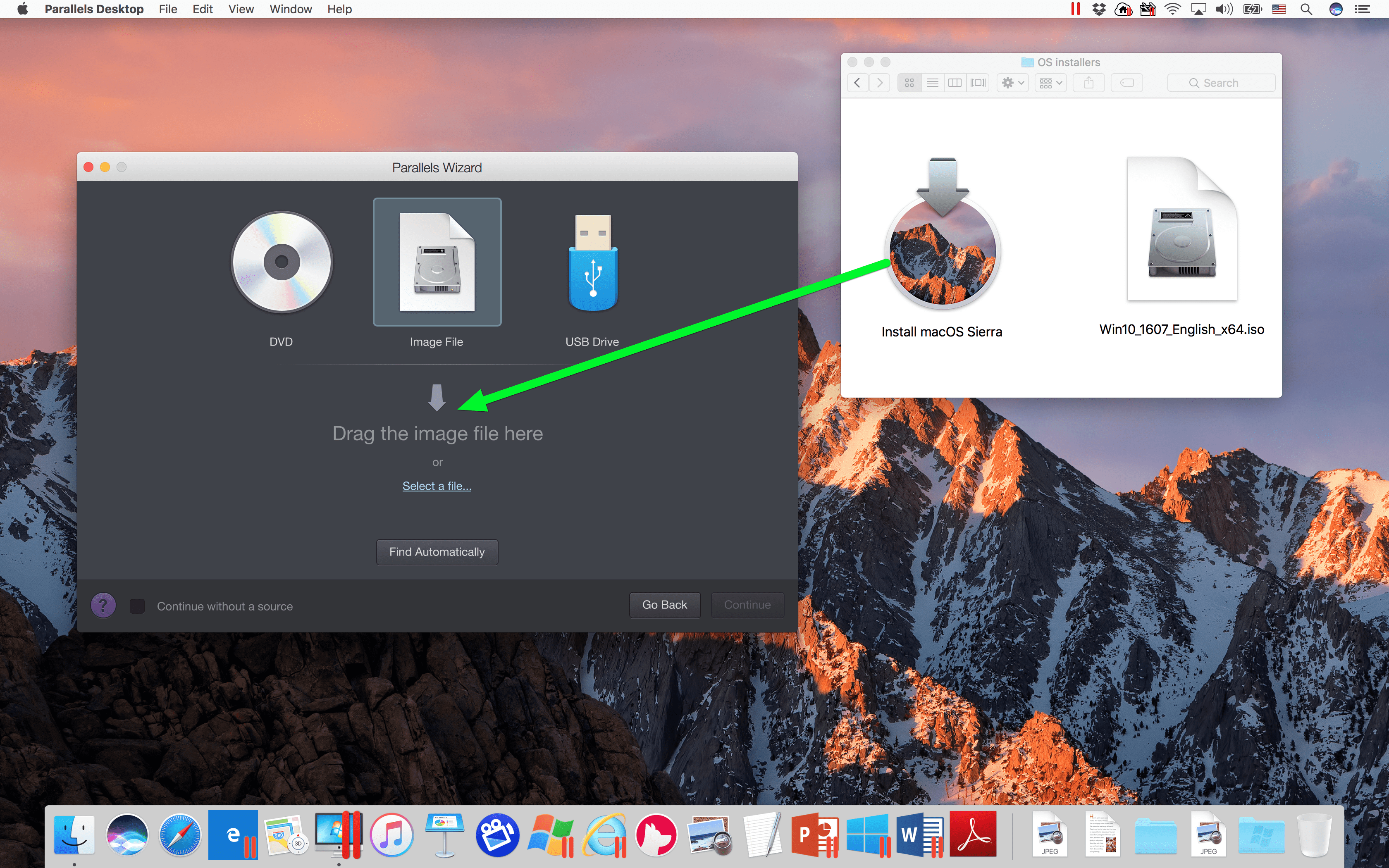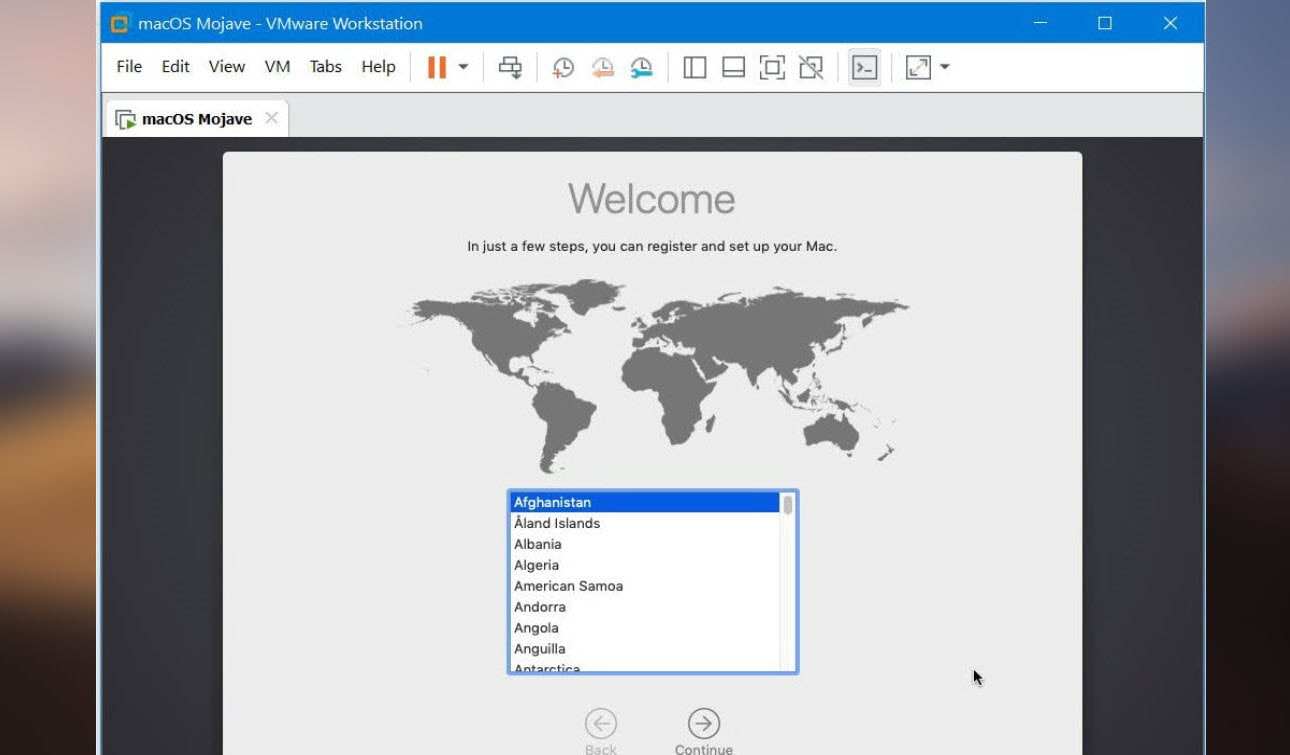

- HOW TO CREATE AN OS X VM HOW TO
- HOW TO CREATE AN OS X VM INSTALL
- HOW TO CREATE AN OS X VM FOR ANDROID
- HOW TO CREATE AN OS X VM ANDROID

HOW TO CREATE AN OS X VM ANDROID
As Android is based on a modified Linux Kernel version, you can select Linux as the guest OS family. A selected guest operating system allows the wizard to provide the appropriate default VM settings for installing an operating system. Hence, ESXi 6.5 and later is selected as the virtual hardware version.Ħ. The Android version that is installed on VMware ESXi in this example is compatible with ESXi 6.5 VM hardware version. The newest VMware features are available for the latest hardware versions of virtual machines. The higher the VM version you select, the better VM performance you get. Select the required hardware version for your Android VMware VM. If you see the compatibility checks succeeded message, go to the next step of the wizard.ĥ. You can leave the default value for the VM storage policy. Select a datastore in which to store the configuration and disk files of the Android VMware VM. In our case, we are using the 10.10.10.74 ESXi host.Ĥ. Select the destination ESXi host on which a VMware Android VM must be run. Select a datacenter and a VM folder in vCenter as a location for the VM.ģ. Enter a name for the new virtual machine, for example, Test-Android. Click Next to continue to the next step.Ģ. The New Virtual Machine wizard is opened.ġ.

Go to Hosts and Clusters in VMware vSphere Client, select the necessary ESXi host (10.10.10.74 in this case), click Actions and in the displayed menu, hit New Virtual Machine. In this example, the android-x86_ file is uploaded to the SSD2 datastore that is connected to the ESXi host whose IP address is 10.10.10.74.
HOW TO CREATE AN OS X VM INSTALL
Open VMware vSphere Client in a web browser, go to Storage, select a datastore connected to the ESXi host on which you plan to install the VMware Android VM, select the Files tab, and upload the installation ISO image to the selected datastore (click Upload Files and select the needed file). You can also see all available images for different architectures on the official web site of the Android project.ĭesigned for businesses of all sizes, NAKIVO Backup & Replication offers complete data protection for all of your production workloads, including VMware vSphere Backup, Hyper-V Backup, Microsoft 365 Backup and more. While the ARM and ARM64 architecture is used on most smartphones and tablets, the image applied in this example is ready for devices using the x86-64 architecture. In this example, we are using the 64-bit version of Android Oreo (the third release). Download the Android Installerįirst, download the Android installation image. If you need to install Android on VMware Workstation to use a VM on a personal computer, you can use the algorithm explained in this blog post since it is nearly the same for both VMware ESXi and VMware Workstation. You can create an Android VMware VM on a standalone ESXi host without vCenter.
HOW TO CREATE AN OS X VM HOW TO
You can read how to install ESXi, configure ESXi and deploy vCenter in our blog posts, including the blog post about VMware home lab. With just a few clicks, you can download the full-featured free trial of NAKIVO Backup & Replication to experience fast, reliable, and powerful data protection in your environment! Prepare Your EnvironmentĪndroid 8.1 and VMware ESXi 6.5 managed by vCenter 6.5 will be explored in today’s blog post. Today’s blog post explains how to install Android on VMware ESXi step by step with screenshots. The advantages of using an Android VMware VM include the possibility of creating snapshots and cloning a VM during the development or testing process.
HOW TO CREATE AN OS X VM FOR ANDROID
Once you install Android on VMware Workstation or ESXi, you will get all features available for Android installed on a smartphone. Fortunately, you can install Android on VMware Workstation, VMware Player, VMware ESXi, and VirtualBox. Most of the time, there is no practical reason to install Android on a physical computer, but there may be some cases when you need to run Android on a virtual machine (VM), for example, when developing applications for Android and testing them. By Michael Bose Installing Android on VMware ESXi: A How-To GuideĪndroid is a very popular and prolific operating system on mobile devices such as smartphones and tablets.


 0 kommentar(er)
0 kommentar(er)
